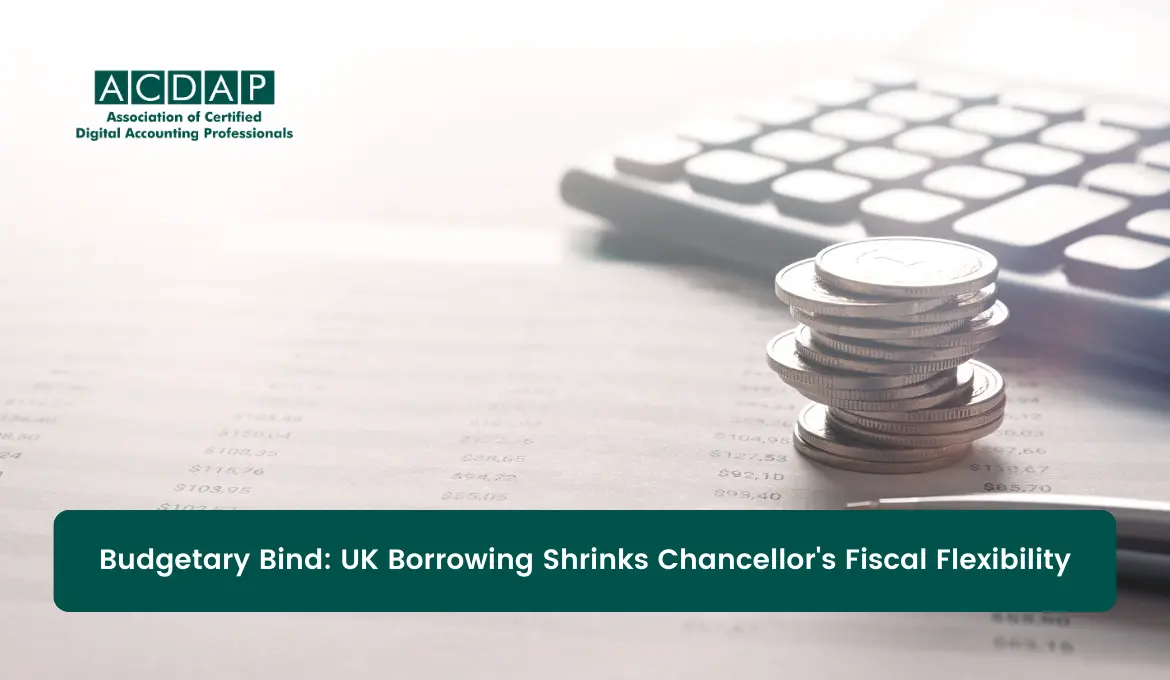As the UK grapples with ongoing economic challenges, government borrowing has become a sharp focus. The Chancellor of the Exchequer faces a complex balancing act: addressing immediate fiscal demands while maintaining long-term financial stability.
The shrinking budgetary flexibility due to increased borrowing poses significant hurdles, impacting the government's ability to respond to economic fluctuations and invest in critical areas.
The Rise in Borrowing
Government borrowing in the UK has surged in recent years, driven by factors including the COVID-19 pandemic, inflationary pressures, and economic policies aimed at stimulating growth. The pandemic, in particular, necessitated unprecedented public spending to support businesses, healthcare, and social services. This spending, while crucial for mitigating the immediate impacts of the crisis, has resulted in a substantial increase in the national debt.
In 2023, the UK's public sector net borrowing stood at £151.8 billion, significantly above pre-pandemic levels. This figure underscores the scale of the financial challenges facing the Chancellor. High borrowing costs add another layer of complexity, as rising interest rates increase the expense of servicing this debt. As a result, a growing portion of the government's budget is now allocated to interest payments, leaving less room for other expenditures.
Impact on Fiscal Policy
The high levels of borrowing and debt have direct implications for fiscal policy. With a larger share of the budget dedicated to servicing debt, the Chancellor's ability to implement new spending initiatives or tax cuts is severely constrained. This limitation is particularly challenging during economic uncertainty, where fiscal flexibility is crucial for addressing unforeseen issues and stimulating growth.
Moreover, the need to maintain fiscal discipline to avoid exacerbating the debt situation puts additional pressure on the government to find a delicate balance between spending and saving. Any significant increase in public spending must be carefully weighed against the potential long-term impact on the national debt. This balancing act becomes even more precarious in light of political expectations and public demand for enhanced services and infrastructure investments.
Economic Growth and Investment
One critical area affected by reduced fiscal flexibility is public investment. Infrastructure projects, education, and healthcare require substantial funding to drive long-term economic development and improve citizens' quality of life. However, with a significant portion of the budget diverted to debt servicing, the scope for new investments is limited.
The government's ability to invest in future growth drivers, such as technology and green energy, is also hindered. These investments are essential for ensuring the UK remains competitive globally and meets its climate targets. Yet, the current budgetary constraints mean these forward-looking initiatives may need more funding, potentially slowing progress in these vital areas.
Social and Political Implications
The constraints on fiscal flexibility also have social and political ramifications. Public services, which many citizens rely on, may face cuts or reduced funding, leading to public dissatisfaction and potential social unrest. This situation creates a complex political landscape for the Chancellor, as the government must navigate public expectations and the reality of fiscal limitations.
Political pressures can further complicate decision-making, with different interest groups advocating for varied spending priorities. Balancing these competing demands while maintaining fiscal discipline requires careful negotiation, often leading to tough compromises. The Chancellor's decisions on budget allocations and policy will inevitably be scrutinised and critiqued, adding another layer of complexity to the role.
Potential Solutions and Strategies
To address these challenges, the Chancellor could consider several strategies to improve fiscal flexibility without exacerbating the debt situation. One approach is to focus on economic growth strategies that increase revenue without significantly increasing debt. Policies encouraging private sector investment, improving productivity, and stimulating innovation can help boost the economy and, by extension, government revenues.
Another strategy is to prioritise spending efficiency. Ensuring that government spending is effective and delivers value for money can help free up resources for critical areas without increasing overall expenditure. This may involve reforms in public sector management, reducing wastage, and improving accountability.
Targeted tax reforms could also help increase revenue without stifling economic growth. Measures to close tax loopholes and improve tax compliance can enhance revenue collection. However, any tax changes must be carefully designed to avoid unintended financial consequences, such as discouraging investment or reducing consumer spending.
Long-Term Fiscal Planning
Long-term fiscal planning is crucial for ensuring the government can manage debt levels while addressing immediate economic needs. Developing a clear and sustainable fiscal strategy that balances spending and revenue generation is essential. This strategy should include contingency plans for economic shocks and a focus on reducing debt over the long term.
The Chancellor might also consider setting up independent fiscal oversight bodies to ensure transparency and accountability in fiscal management. These bodies can objectively assess budgetary policies and help build public trust in the government's fiscal strategy.
The Bottom Line
The UK's current borrowing levels present a significant challenge for the Chancellor, limiting fiscal flexibility and complicating economic management. High debt levels necessitate carefully balancing immediate spending needs and long-term financial stability. The constraints on public investment and social spending, along with the political complexities, create a demanding environment for fiscal policy.
However, the Chancellor can navigate these challenges by focusing on strategies to boost economic growth, improve spending efficiency, and implement targeted tax reforms. Long-term fiscal planning and independent oversight are also vital for maintaining financial health. Despite the difficulties, thoughtful and strategic fiscal policy management can help steer the UK towards sustainable economic prosperity.


























